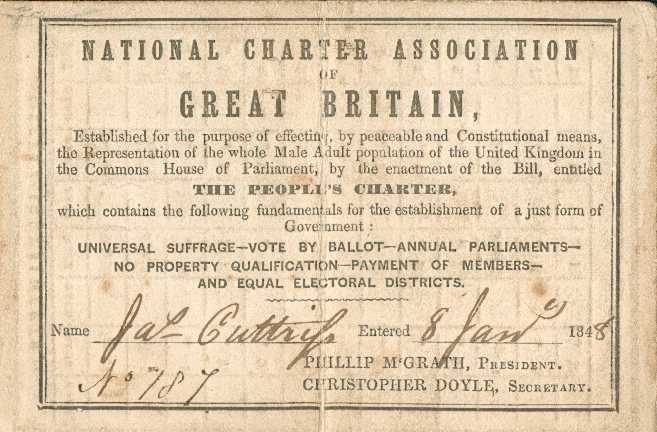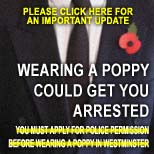Creeping Corporatism
The Verification of Information in Passport Applications uses powers granted by Section 38(3) and (5) of the Identity Cards Act 2006. This authorises the Home Secretary to appoint commercial Credit reference agencies to provide personal details (rarely known or checked by the individual): "for the supply of services relating to the provision of information concerning the identity of individuals." There is no suggestion that Credit Rating information is accessed. Although a stroke of a Minister's pen under the Legislative and Regulatory Reform Act would be all that is needed to access such information.
The Government is using a commercial agency (Equifax) to check the validity of information on Passport Applications. The Driver and Vehicle Licensing Agency was reported as doing so in 2004. Yet at the same time, the Identity and Passport Service (IPS) has, since 2006, been implementing a commercial service of passport validation. The Personal Identification Project is a part of the shift in the role of the IPS to that of accumulating biographical data to help with identity verification. This also helps pave the way to a backdoor ID database without the need to implement ID Cards (but in practice alongside their introduction). There is the wider context of the Corporate and Business Plan of the IPS.
The UK's principal Credit reference agencies are allowed to use the full Electoral Registers to check name and address for credit enquiries.. But there has been an historic hole in the database held relating to the Rolling Electoral Register: “We do not have access to the full Electoral Registers after October 2002” - Equifax. This in 2003.
The Rolling Electoral Roll was introduced to the UK in 2001. This facilitates a monthly update of the Electoral Register so that people who move frequently (and who know about this resource) can maintain their Electoral franchise. Registration is not compulsory. Unlike the Electoral Register, the Rolling Electoral Roll is not published in print and will therefore not be available at your local library. In 2003, it was reported that Credit reference Agencies were not including names from the Rolling Electoral Register on their database. People were refused credit on those grounds. The fatuous reason given was that the Agencies lacked confidence in the cross-checks made by local authorities before entering someone on the Rolling Electoral Register. The 2003 report suggested that the missing information would be added later that year. There remains the possibility that the information held on file by Agencies used by the Government for Passport, DVLA and other cross-checks is incomplete or flawed.
A bastard relationship between Government and Commerce in such fields should perhaps be legitimised by marriage. Government Departments and Agencies (the DVLA, the Passport Office) are using private Credit Reference Agencies to source information which is held on record by – correct me if I am mistaken – that same Government which pays for those private agencies to regurgitate information collected and held on file by Local Government. That information is then used by the Passport Service as a part of its commercial service for passport validation.
The increasingly blurred boundaries between the Public, Private and Corporate sectors highlight a field where there are inadequate safeguards on practice which lie outside the ready scrutiny of MP's or Parliament. The use of Credit Reference Agencies is one further symptom if the explosion of Public Private Partnerships in the NHS, Local Government, Security, Communications or other fields of responsibility. There are inadequate safeguards on how that information is accessed.
The entire field of e-Passports, ID Cards and the National Identity Register (NIR) is vulnerable to the flaws here evident. The potential for access to the NIR by Banks and other commercial institutions is deeply worrying. The boundaries between Government and the Corporate are increasingly blurred. We are not quit yet in 1930's Italy. Or Germany, for that matter. But Mussolini's warning remains: “Fascism should rightly be called Corporatism, as it is the merger of corporate and government power.”
Quoting from Page 37 of the IPS Corporate Plan:
“The UKPS is critically dependent on the following private-sector partners to fulfil its mission.
•Siemens Business Services (SBS) provide services at the front end of the passport production process.It is responsible for providing mail room services, scanning application forms, cashiering fees and initial query handling with the applicant. SBS also provided the IT infrastructure to support all UKPS passport applications operations and is continuing to develop this.
•Security Printing and Systems Ltd (SP&SL) is responsible for printing over 94% of all passports.
•ATOS Origin is responsible for the separate UKPS Admin IT network and desktops.
•MM Teleperformance (MMT) is responsible for dealing with over 90% of all telephone enquiries. It also handles appointment bookings and e-mail and electronic application support on behalf of the UKPS.
•Our High Street partners, Worldchoice UK Limited and the Post Office Limited, are recognised as the first port of call for those seeking application forms. These partners also provide a ‘Check and Send’ service, and receive over 48% of all applications on behalf of UKPS.
•Special Mail Services Limited (SMS) is responsible for the secure delivery of all UK passports.
•Equifax provides the systems and private-sector data for the Personal Identification Project (PIP).”
By way of an end-note, let me remind you that the Identity and Passport Service takes over responsibility for the General Register Office from the Office of National Statistics in April 2008. All Birth, Marriage and Death records will from that time be held by the IPS. This will be the beginning of a lifetime biographical record of British Subjects.
(“>
Dodo






